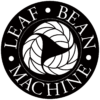What is Organic Coffee?
Organic coffee beans have been farmed without the use of synthetic fertilisers or pesticides, and strict guidelines need to be followed before a farm will be granted organic certification.
We often get asked if our Karvan coffee beans are certified organic. In the interests of full disclosure – no, our coffee beans are not certified. However, we don’t believe this should be a determining factor in the way you buy your coffee. Here’s why:
Cost to Farmers
First of all, 80% of coffee farmers are small-holders. These farms produce smaller crops, and often need to produce subsistence crops to make ends meet. The majority of these farms are family owned and operated to keep labour costs down. How then, should we expect these farmers to afford to pay the annual fee for organic certification? Organic certification has steep costs that small-holders, in most cases, cannot afford.
Coffee farmers’ livelihoods depend on the quality and size of their crop, so they want to maximise the potential of their harvest. Farmers have learnt to provide adequate shade to protect their plants and grown hardier, pest-resistant cultivars of the arabica variety, such as Caturra.
With these measures in place, it is often unnecessary for farmers to spray their crops with pesticides. It is also difficult for them to afford the expensive pesticides our privileged Westernised societies turn our noses up at.
Second of all, organic farms produce 45% less coffee at harvest. The labour requirements are more intensive as the crops are more susceptible to pests and invasive weeds. Lower crop yields and higher labour costs can break farmers.
Becoming certified organic doesn’t mean zero fertiliser or pesticides, it only inhibits the use of synthetic forms of these. The organic versions of herbicides and pesticides are almost always more expensive than the generic ones. Rigid rules make organic certification inaccessible for many coffee farmers.
This article explores further the affects of trying to uphold an organic farm. Most farmers who attempt the switch to organic farming struggle with the lack of support. There is very little educational, financial and technological support to assist farmers, leaving them to fend for themselves. One farmer speaks of his experience making the switch to organic.
“When I took those first 50 acres to transition to organic, I was scared to death,” he says. “I thought in the back of my head, I’ve come home and I’m going to ruin the family farm.”
With the need for a bigger workforce, more expensive equipment and the endless amount of know-how – organic farming isn’t a viable option for all farmers. The National Geographic article focuses on farms in the U.S so we can only imagine the immense struggle that less wealthy countries suffer.

Cost to Roasters
Finally, in order for us as coffee roasters to sell our coffee as certified organic, we must roast the green beans on an exclusively organic roaster. This means we either have to commit to buying organic green beans only, or have a separate roaster specifically for roasting organic coffee.
The coffee farmers who can afford to certify their farms as organic are often operating at a much larger scale, and turning over more profit than the small-scale farmers we choose to support. We find that small-holder farmers take a lot of care with their farming methods. It is their livelihood, their passion, and often their family’s long standing business.
If we decided to only roast and sell organic coffee, we would have to stop supporting many of the farmers who are producing excellent quality, specialty grade coffee. This is not in line with our business ethos. We are passionate about sourcing ethically produced, high quality coffee beans for your enjoyment.
We hope this information helps you make informed decisions about your coffee purchase.



